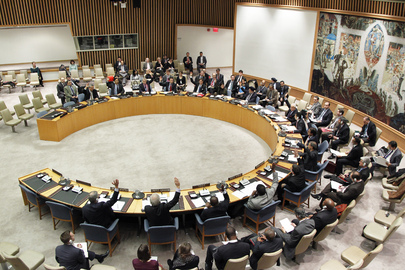Mea Culpa: The Virtues of Habeas Review Outside the Combat Zone
My contribution to our 9/11 10th Anniversary Project concerns the role of the judiciary in relation to detention. Well do I recall my reaction to the first wave of Guantanamo litigation back in the 2002-2004 period, the wave the culminated in the Supreme Court's Rasul decision (construing the federal habeas statute to confer jurisdiction with respect to habeas claims brought by Guantanamo detainees). I was certain that Johnson v.
My contribution to our 9/11 10th Anniversary Project concerns the role of the judiciary in relation to detention. Well do I recall my reaction to the first wave of Guantanamo litigation back in the 2002-2004 period, the wave the culminated in the Supreme Court's Rasul decision (construing the federal habeas statute to confer jurisdiction with respect to habeas claims brought by Guantanamo detainees). I was certain that Johnson v. Eisentrager controlled those cases, and in any event that it was unprecedented and unwise to involve the judiciary in reviewing the decision of the military to detain non-citizens captured outside the United States in the course of war. At that time, I failed to appreciate just how different from a conventional war the "war on terrorism" was (or at least how different it was outside the context of Afghanistan, where something relatively conventional was in fact underway), nor how tenuous the case for detention in some instances actually was. I also failed to appreciate the empowerment that could flow from embracing judicial review in at least some contexts. That is to say, I did not fully grasp the fact that independent and robust judicial review could contribute to building a degree of consensus both by providing answers to perpetually-contested questions regarding the scope of the government's legal authority to detain (to a substantial but not unlimited extent validating the positions taken by the late Bush administration and the Obama adminisration) and by providing genuinely independent assessments of the factual basis for particular detention decisions (every decision going against the government enhanced the credibility of the claim of independent, robust review, thereby making every decision in the government's favor all the more credible). In light of all this, I've come around to the view that for non-combat-zone captures, habeas review is positively beneficial on many levels, and should be embraced rather than resisted.
Robert (Bobby) Chesney is the Dean of the University of Texas School of Law, where he also holds the James A. Baker III Chair in the Rule of Law and World Affairs at UT. He is known internationally for his scholarship relating both to cybersecurity and national security. He is a co-founder of Lawfare, the nation’s leading online source for analysis of national security legal issues, and he co-hosts the popular show The National Security Law Podcast.




